Health
Local LGBT groups assist with Obamacare
Whitman-Walker, Us Helping Us, D.C. Center helping uninsured sign up
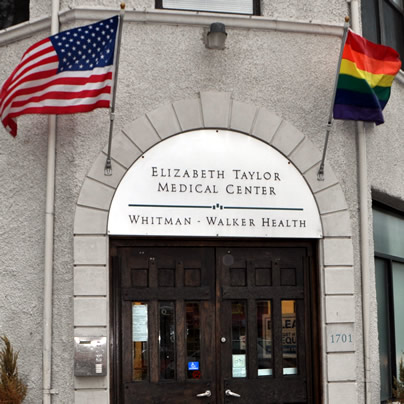
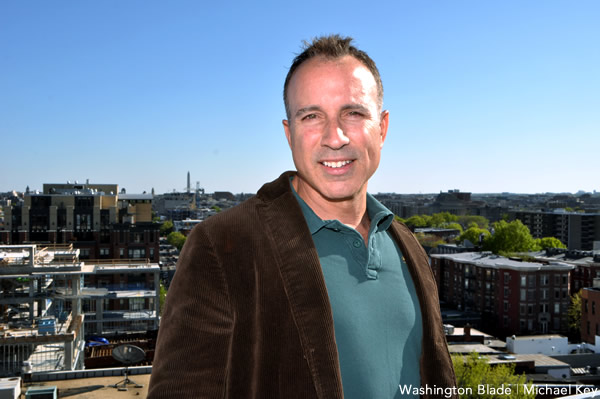
Local businessman David Franco was among several D.C.-area advocates who spoke at a news conference at the National Press Club on Tuesday to draw attention to what they consider the strong advantages of the Obamacare program. (Washington Blade file photo by Michael Key)
At least seven D.C.-based LGBT or LGBT-friendly organizations sprang into action on Tuesday to help members of the LGBT community and people with HIV choose a health insurance plan under the controversial U.S. Affordable Care Act that’s better known as “Obamacare.”
Similar to reports surfacing from across the country, officials from the local groups said some of their clients encountered computer glitches on the website for D.C. Health Link, the city’s online health insurance marketplace or “exchange” on its first day of operations on Tuesday.
But all of the officials contacted by the Blade said they were optimistic that the exchange program in D.C. and those in neighboring Maryland and Virginia would soon be operating smoothly and would be an important resource for LGBT people looking for health insurance.
“I’m excited about it,” said Ron Simmons, executive director of the D.C.-based Us Helping Us, an HIV services organization that reaches out to black gay men.
“We have so many clients who don’t have health insurance,” Simmons said. “If you are HIV positive you need a certain type of insurance, and we are ready to help people choose the best policy suited for their needs.”
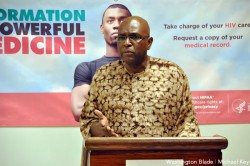
Ron Simmons, president/CEO of Us Helping Us (Washington Blade photo by Michael Key)
Us Helping Us is one of five D.C.-based organizations that received a grant from the D.C. Health Benefit Exchange Authority to recruit members of the LGBT community to sign up for insurance under the Obamacare program. The grant calls on the five groups — as well as another 30 organizations that received grants to work with other constituencies — to help their clients navigate the complicated process of choosing the best possible insurance plan.
The other organizations that received grants to work with the LGBT community on the Obamacare program are Whitman-Walker Health, D.C. Care Consortium, Damien Ministries and Health HIV.
Health HIV, a new national AIDS advocacy organization located in the Dupont Circle area, applied for its grant in partnership with the D.C. Center for the LGBT Community and Westminster Presbyterian Church’s START program. The START program provides HIV/AIDS-related services with a special outreach to people with substance abuse problems.
“This is an important opportunity to engage our communities in a conversation about healthcare and for us all to better understand the changes that are taking place in the healthcare system,” said David Mariner, executive director of the D.C. Center.
“Our goal is to help 300 individuals enroll in a healthcare plan and to make the process as simple as possible for them,” Mariner said.
Simmons of Us Helping Us said his group has a goal of helping to enroll 1,000 people on a health insurance plan through the D.C. Health Link system during the nine-month-long grant period.
“We will have town hall meetings,” said Simmons. “We will go to the clubs. Our purpose is to help people enroll in the plan best for them.”
Under the Affordable Care Act’s various provisions, Tuesday, Oct. 1, became the first day that the health insurance exchanges opened for business, enabling people to review dozens of options for insurance plans. Consumers may sign up for a plan between now and next March during the program’s first annual open enrollment period. Insurance policies won’t go into effect until Jan. 1.
In order to receive a policy that begins Jan. 1, people must sign up and pay their first monthly premium by Dec. 15, government officials in charge of the program said. People may still sign up between Dec. 15 and March 31, with their policy taking effect at the first day of the following month. After the March 31 deadline, enrollment in the program will be closed until October 2014.
Experts monitoring the system have said the cost of premiums and additional payments such as deductibles and co-payments for doctor visits and prescription drugs vary widely with the different options available. But those familiar with the program say the costs so far appear to be significantly lower than health insurance available in the past in the private market.
Carl Schmid, deputy director of the AIDS Institute, a national AIDS advocacy organization, noted that low-income people may now enroll in Medicaid in the states that have agreed to expand their Medicaid programs under a non-mandatory provision of the Affordable Care Act. D.C. and Maryland opted to become part of the expanded Medicaid program while Virginia declined to do so.
Schmid points out that prior to the Affordable Care Act’s Medicaid provision, which took effect last year, low-income people with HIV who didn’t have private health insurance were not eligible for Medicaid unless they were medically disabled with an AIDS diagnosis.
“So now people with HIV who don’t have full-blown AIDS qualify for Medicaid,” Schmid said. “Our goal, of course, is to keep these people healthy.”
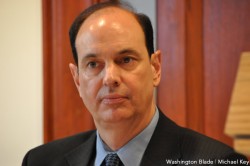
AIDS Institute Deputy Executive Director Carl Schmid (Washington Blade file photo by Michael Key)
Schmid and others familiar with the Obamacare program note that in Virginia and other states that chose not to participate in the expanded Medicaid program, people with incomes below a certain federally defined level are eligible for federal subsidies to help pay for their insurance premiums and co-pays.
Erin Loubier, director of public benefits and senior managing attorney for Whitman-Walker Health, said people with HIV and LGBT people whose income levels may not make them eligible for the subsidies will benefit from another provision of the healthcare law already in effect.
“Anyone living with HIV or another chronic health condition will be able to get insurance,” she said, noting that prior to the Obamacare law insurance companies routinely rejected people with a pre-existing condition.
She said the generally lower prices for premiums through the exchanges will also benefit those who aren’t eligible for subsidies.
Under its grant from the D.C. Health Benefit Exchange Authority, Whitman-Walker will provide its clients as well as non-clients the services of trained “navigators” or “assisters” to help people choose the best insurance policy through D.C. Health Link. According to Loubier, Whitman-Walker will also provide training for people to become navigators and, similar to Us Helping Us, will reach out into the community to recruit people to sign up for insurance under the Obamacare program.
“The role of these assisters is critical,” she said. “Even computer savvy people may not be able to navigate the system by themselves.”
Guy Westin, executive director of D.C. Care Consortium, which provides services to people with HIV, said his group is providing navigator services to individuals as well as non-profit community organizations about the enrollment process for Obamacare.
D.C. gay businessman David Franco, owner of the clothing store chain Universal Gear and the real estate development company Level Two, said he was pleased to discover that prices announced so far by insurance companies offering employer health plans for small businesses are lower than previously available plans.
“I was able to see in a matter of 15 minutes with a couple of clicks on my keyboard what my rate would be and compare that to an equivalent plan and see the savings that are offered by different insurance companies,” Franco said.
“So the fact that you’ve got this open, free market has really created this price competition, and it’s going to drop the overall cost for the plan for all of my employees,” he said.
Franco was among several D.C.-area advocates who spoke at a news conference at the National Press Club on Tuesday called by D.C. Health Link and the healthcare consumers’ group Families USA to draw attention to what they consider the strong advantages of the Obamacare program.
Similar to Americans across the country, local LGBT advocates working on the Obamacare program say some LGBT people will likely be surprised and put off when they realize they will be subjected to a $95 tax penalty from the IRS in 2014 if they don’t have insurance and fail to buy a policy under the new program. The penalty for not having insurance in 2015 goes up to $700.
Federal officials in charge of Obamacare point out that people who already have insurance either through their employer or on the private market and people already on Medicaid or Medicare will not be required to do anything under the new program. Their insurance status will remain as it is, officials said.
Following is a list of the seven D.C.- based organizations known to be providing services to the help the LGBT community and people with HIV access the Obamacare program, including the process of singing up for an insurance plan. Officials with the groups say it’s preferable to call first for an appointment but walk-ins are accommodated when possible.
Whitman-Walker Health
1701 14th St., N.W.
Us Helping Us
3636 Georgia Ave., N.W.
D.C. Care Consortium
7059 Blaire Road, N.W., Suite
Health HIV
2000 S St., N.W.
Damien Ministries
2200 Rhode Island Ave., N.E.
D.C. Center for the LGBT Community
1318 U St., N.W.
START Program at Westminster Presbyterian Church
400 I St., S.W.
Health
UNAIDS to commemorate Zero Discrimination Day’s 10th anniversary
UN agency urges global action to protect human rights
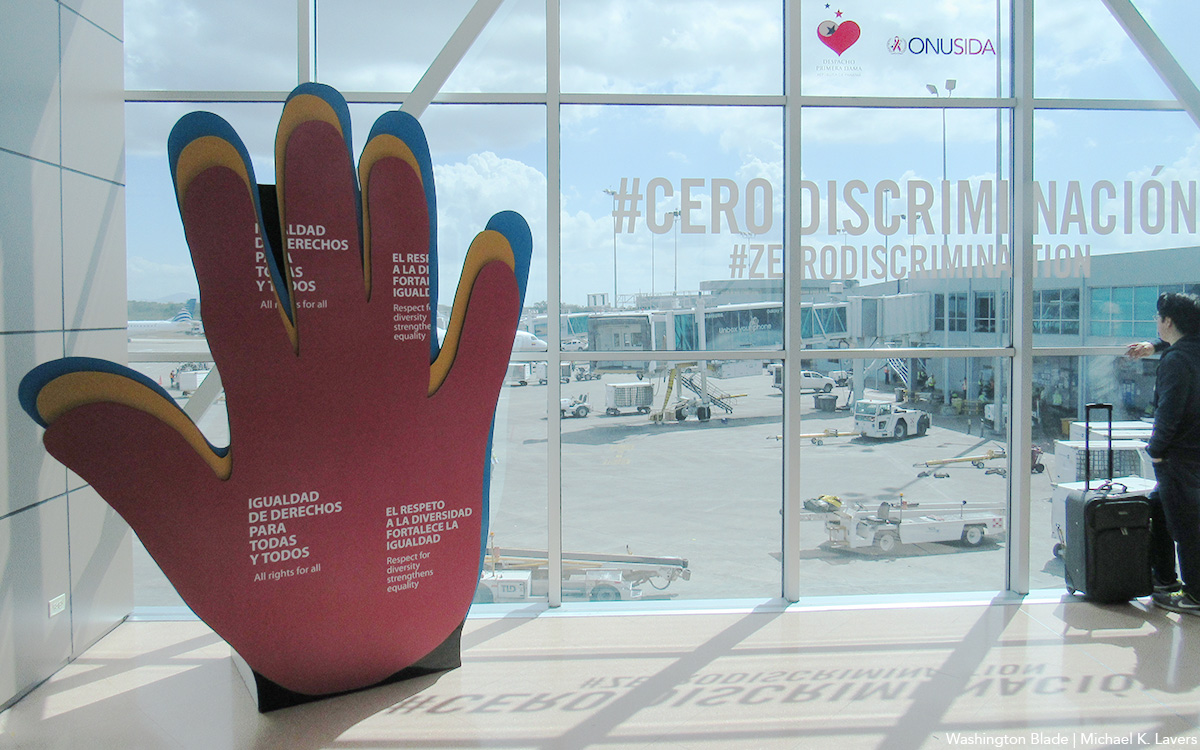
As the world marks the 10th anniversary of Zero Discrimination Day; UNAIDS is sounding the alarm on the increasing threats to human rights, calling for renewed efforts to protect the rights of all individuals as a fundamental step towards ensuring health for everyone.
Established by UNAIDS a decade ago, Zero Discrimination Day aims to promote equality and fairness regardless of gender, age, sexuality, ethnicity or HIV status. The progress achieved over the past years is now in jeopardy, however, due to rising attacks on the rights of women, LGBTQ people and other marginalized communities.
UNAIDS Executive Director Winnie Byanyima emphasized the critical link between protecting human rights and safeguarding public health.
“The attacks on rights are a threat to freedom and democracy and are harmful to health,” she said in a press release. “Stigma and discrimination obstruct HIV prevention, testing, treatment and care and hold back progress towards ending AIDS by 2030. It is only by protecting everyone’s rights that we can protect everyone’s health.”
Despite challenges, there has been notable progress.
At the onset of the AIDS pandemic more than 40 years ago, two-thirds of countries criminalized consensual same-sex sexual relations. They are now decriminalized in two-thirds of countries. An additional 38 countries around the world have pledged to end HIV-related stigma and discrimination, contributing to positive changes that include 50 million more girls attending school compared to 2015.
To sustain and enhance these advancements; UNAIDS urges global support for women’s rights movements, LGBTQ rights, racial justice, economic justice, climate justice and peace initiatives. By standing with communities advocating for their rights, the U.N. aims to reinforce the collective effort towards a more inclusive and equitable world.
Zero Discrimination Day is observed on March 1.
Events and activities that will take place around the world throughout the month will serve as reminders of the essential lesson and call to action: Protecting everyone’s health is synonymous with protecting everyone’s rights.
“Through upholding rights for all, we will be able to achieve the Sustainable Development Goals and secure a safer, fairer, kinder and happier world — for everyone,” said Byanyima.
Health
New CDC report finds transgender women at higher risk for HIV
More than 1,600 people in seven cities surveyed
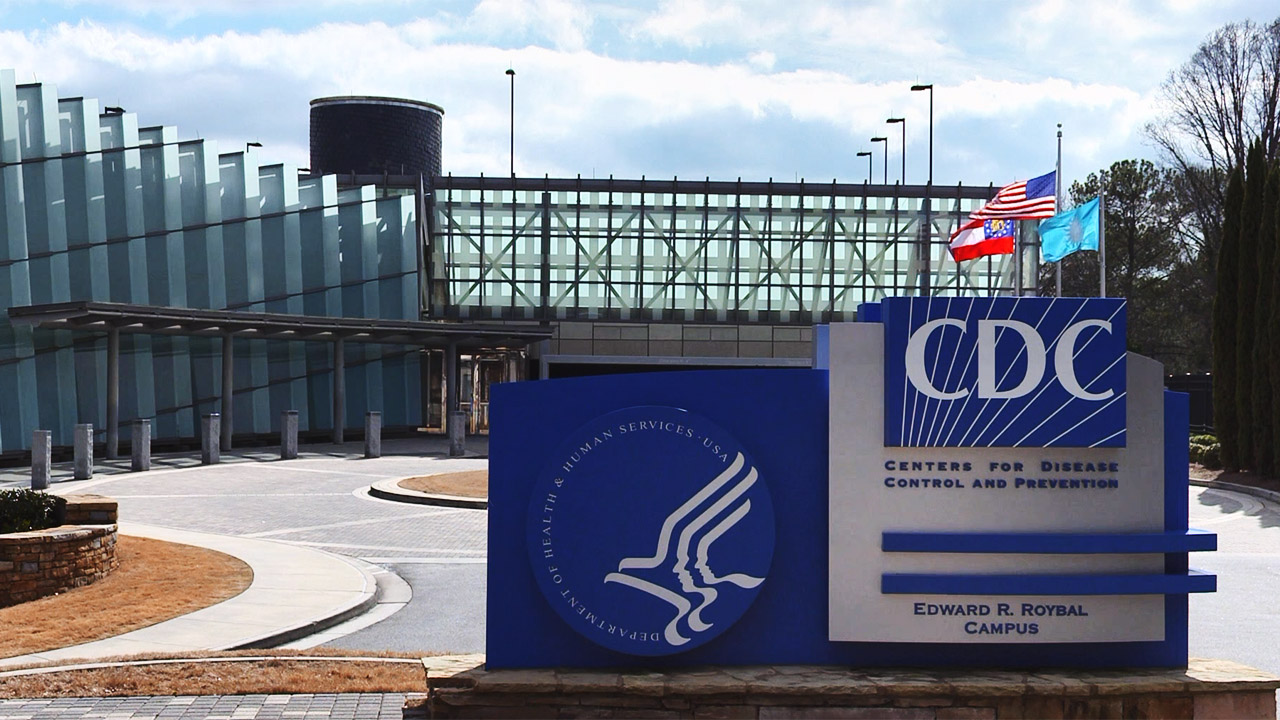
The Centers for Disease Control and Prevention issued a new study report this week that revealed that restricted by employment and housing discrimination and lack of access to needed gender-affirming healthcare for transgender women increasing the risk of contracting HIV.
Researchers reviewed data from a 2019-2020 survey, the National HIV Behavioral Surveillance Among Transgender Women, which found that the demographics of HIV/AIDS have been disproportionally high, especially among Black and Latina trans women, who had experienced employment and housing discrimination coupled with lack of access to gender-affirming healthcare.
The Jan. 25 Morbidity and Mortality Weekly Report was based on data studies of more than 1,600 trans women in seven major urban locales. Participants from Atlanta, Los Angeles, New Orleans, New York, Philadelphia, San Francisco and Seattle were chosen by referrals from people and community-based organizations who knew or were part of the local population of trans women.
The study’s researchers noted: “Employment discrimination occurs at the overlapping nexus of poverty, homelessness, incarceration, health insurance, disability, food insecurity and survival sex work. These issues are interconnected.”
The study stated that trans women’s inability to access quality healthcare, including gender-affirming treatment or access to PrEP, and can expose them to potential incarceration as many turn to “survival sex work” and violence, which increases the risk of contracting HIV.
The study’s author’s pointed out: “When economically marginalized transgender women are refused employment, this refusal cyclically contributes to economic hardships. This analysis …demonstrates the importance of transgender women working and living with dignity and without fear of unfair treatment.”
Health
A Whole New Perspective on Well-Being
The Mather’s team recognizes that everyone’s wellness journey is completely unique to their life experiences and influences.

It’s easy to spot the distinctive, elegant silhouette of The Mather, a Life Plan Community for those 62+ opening this spring in Tysons, Virginia. What is not apparent to the naked eye is The Mather’s unique wellness philosophy, which is literally built into the community.
The Mather’s team recognizes that everyone’s wellness journey is completely unique to their life experiences and influences.
Nature is one of the important factors that contribute to well-being. So The Mather is incorporating biophilic design—a design approach to facilitate access to nature or things that replicate natural patterns. This can include interior spaces with sightlines to a garden, choosing natural wood and stone as interior materials, or incorporating fragrant flowers and plants indoors to spark memories and provide tactile opportunities such as gardening.
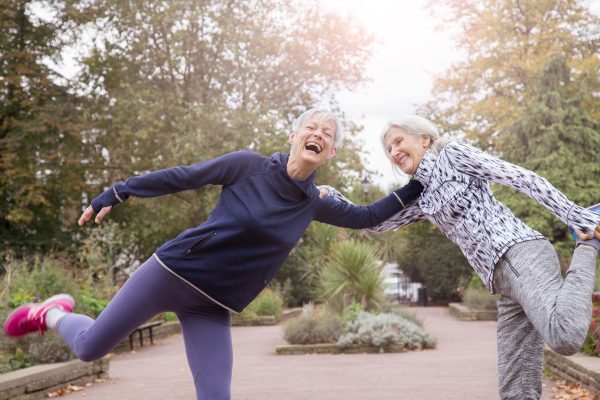
“Providing biophilic design within interior settings connects residents to the natural world,” says Mary Leary, CEO and President of Mather, the organization behind The Mather. “Research shows that a connection to nature provides positive benefits to mental states and overall well-being. At The Mather, biophilic design is the intersection of buildings and programs with nature in an urban setting.”
“The Mather is attracting a diverse group of older adults,” says Mary. “As a result, we aim to incorporate wellness practices from around the world, including Wyda movement theory of the Celtic Druids, which helps people achieve harmony with nature and contentment through mindfulness.” This holistic regenerative approach is similar to Qi Gong and yoga, while born in a different part of the world. Mather Institute has a special focus on mindfulness to support older adults’ practice of present moment awareness, which can lead to increased overall well-being, compassion, and joy.
A very different example of a wellness offering at The Mather is the Gharieni Welnamis spa wave bed, which uses computer-controlled vibrational therapy and audio frequencies to train the brain to relax. “The bed increases mindfulness, concentration, and creativity—all of which support our mission of creating Ways to Age Well,SM” says Mary.
These and other personalized ways to wellness will ensure that residents of The Mather can choose from seemingly countless ways to focus on their well-being. In other words, the sky’s the limit!
-

 Africa4 days ago
Africa4 days agoCongolese lawmaker introduces anti-homosexuality bill
-

 District of Columbia1 day ago
District of Columbia1 day agoReenactment of first gay rights picket at White House draws interest of tourists
-

 World5 days ago
World5 days agoOut in the World: LGBTQ news from Europe and Asia
-

 Arizona1 day ago
Arizona1 day agoAriz. governor vetoes anti-transgender, Ten Commandments bill












